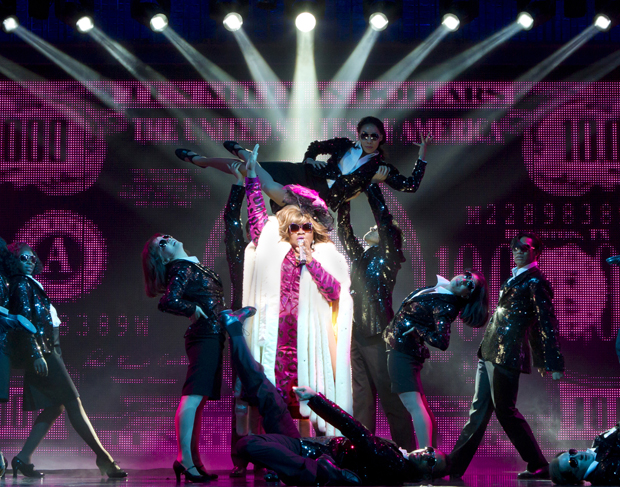What the Tony Awards are really for
By Kelly Kleiman

What the Tony Awards are really for
By Kelly Kleiman
The Tony Awards, and particularly their upcoming broadcast on Sunday night, are designed to solve two theater-industry problems, one insoluble and the other self-inflicted.
The insoluble problem is that theater is, by definition, local: One group of audience members at one location sees one group of players do something that will never be repeated. Oh, the script may be repeated, even in the same location and with the same cast, but it won’t be the same show, because every night the energy level of the actors will be different, so their chemistry with each other and with the audience will be different. More to the point, though, if you’re not in New York you’re not going to see shows that only play in New York. And by the time they get to Chicago (or Altoona) you may have forgotten about them completely. After all, what’s to remember? A name? You’ve seen nothing of the shows, heard nothing about the shows and–if you live in Chicago–you have plenty of local theater of your own to pay attention to.
So Broadway producers have a problem: how to attract and maintain the attention of people who might like their show but don’t live in Manhattan. For those people (that would be all of us), the Tony Awards function as a sort of Good Housekeeping Seal of Approval. If you visit New York without obsessively scanning the critics (and it pains me as a critic to note how few people are scanning me obsessively!), you have only two ways of identifying shows that might conceivably be worth your time and money: a sign saying “Seventh Smash Year!” or words to that effect, and a sign saying “Tony Award-winning.” And if you think the latter sign is unimportant, check Variety on Monday to see how many Tony-less shows are posting their closing notices.
The second, self-inflicted problem is implied in the first: in asking, “What shows might conceivably be worth $100-plus a ticket?” you’re inevitably asking if anything could be. When shows are that expensive, you don’t want to take a risk. Let us all praise cutting-edge theater, of course, but there’s no particular virtue in a family of four’s risking that a $1,000 evening of dinner-and-a-show is a disaster. If those prices had been in effect when my parents were taking us on our annual theater trip to New York, I wouldn’t be a theater critic, because we would have seen one pre-approved show instead of three what-the-hell-let’s-try-its.
The Tony Awards can’t change the fact that Broadway theater is no longer within the reach of ordinary middle-class people–because like the light bulb in the joke, Broadway really has to want to change. But why would it? Broadway shows charge as much as they do for the same reason dogs lick their private parts: because they can. And as long as the producers are making money, who cares whether their pricing policies are rapidly turning theater from an essential communications art form into a fetish?
Enjoy the show.